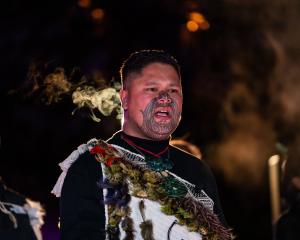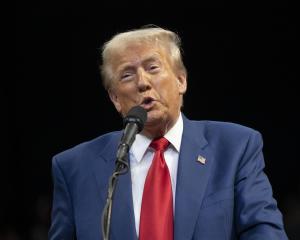
The Treasury will today take another step down its ``wellbeing economics'' track. On that road, Finance Minister Grant Robertson is signposting a ``wellbeing Budget'' in 2019.
The event is the Treasury's four-yearly investment statement. Up to now it has essentially been a balance sheet of the government's financial and physical assets and liabilities. Today's will flag an extension.
The statement's title is He Puna Hao Patiki. By stating the title in te reo, as it did for its 2016 long-term fiscal projection, He Tirohanga Mokopuna, the Treasury is symbolically recognising there is more to the economy than assumed by ascetic market-liberal doctrines, which ignore te ao Maori.
In He Tirohanga Mokopuna, the Treasury said that while material living conditions improve people's wellbeing, ``there are also other dimensions of wellbeing. Broadening the framework of our long-term thinking requires a multi-disciplinary approach to economic, social and environmental policies.''
He Puna Hao Patiki will state the Treasury's objective as investing for wellbeing. It will include a section on its aim to put the nation's natural, social and human capital alongside the government's financial/physical capital.
The theory is that if those stocks of capital are rising, wellbeing is improving and vice-versa. That takes economic assessment far beyond gross domestic product (GDP), which in the digital era misses an increasing amount of productive activity besides not measuring unpaid production such as raising children and voluntary work.
The Treasury aired its ``four-capitals'' wellbeing project in November at a half-day symposium of academics, economists and policy wonks.
Bill English and Steven Joyce (rest their political souls) had not been converts but also had not told the Treasury to stop.
In fact, wellbeing economics meshes with English's ``social investment'', aimed at measurable positive outcomes for those thought most in need. To that end, the Treasury's CBAx (cost-benefit-plus) tool requires departments making budget bids to define, with evidence tested by their external science advisers, the real change the ``investment'' will generate in people's lives.
Wellbeing economics fits comfortably into Robertson and Prime Minister Jacinda Ardern's thinking and enables them to pick up and widen social investment. It fits Greens' ``ecological economics'' which measures whether natural capital stocks are rising or falling.
Hence Robertson's designation of the 2019 Budget as the ``wellbeing Budget''.
A pointer towards that is Ardern's Bill in Parliament requiring the Treasury, under the Public Finance Act, to include measures of child poverty. Robertson and Ardern intend to take the Public Finance Act much wider - when the Treasury can do the measurements.
That is a tall order.
The Treasury got its child poverty impact assessments wrong in December. Can it tell us the real value of natural resources and ecosystems, whether that stock of capital is improving or worsening and how intergenerationally resilient it is? Or the real value of social capital (including social connections, attitudes and norms, institutions and trust) and human capital (including skills, knowledge and physical and mental health)?
In fact, today's investment statement will not attempt that. It follows three high-level discussion papers in February on what has been done offshore - including, most notably, the Organisation for Economic Co-operation and Development's (OECD) better living index which takes snapshots of wellbeing - and what might be done here.
But there are large data gaps. So, no numbers today.
Still, the Treasury is assembling data on ``sub-domains'' - component parts of the three additional capitals.
It is developing the methodology in papers for Robertson aimed at the 2019 Budget - though honing the numbers to be as useful in policy development as traditional financial numbers is likely to take years.
If it can be done, that is. Sceptics include a senior economic journalist who sniffs that the Treasury may as well try to measure ``metaphysical capital''.
But there is growing international interest and activity in this wider approach to economic and fiscal management. For example, the World Bank recently published a global assessment of countries' natural and human capital.
But wait, there's more.
Next Monday, initial findings of an international collaboration assessing human rights will go live hosted by Wellington-based think-tank Motu Economic and Public Policy Research.
Co-founded and led by former Reserve Bank, OECD and Treasury official Anne-Marie Brook, who has academic credentials in psychology as well as economics, the project brings together political and civil rights with economic and social rights.
The 13-nation study includes developing and developed countries. Unsurprisingly, New Zealand rates high - well ahead of, for example, Australia.
That's wellbeing from another angle. GDP counts - but it misses a lot of what matters. A gap the Treasury wants to fill.
Colin James is a leading social and political commentator.











